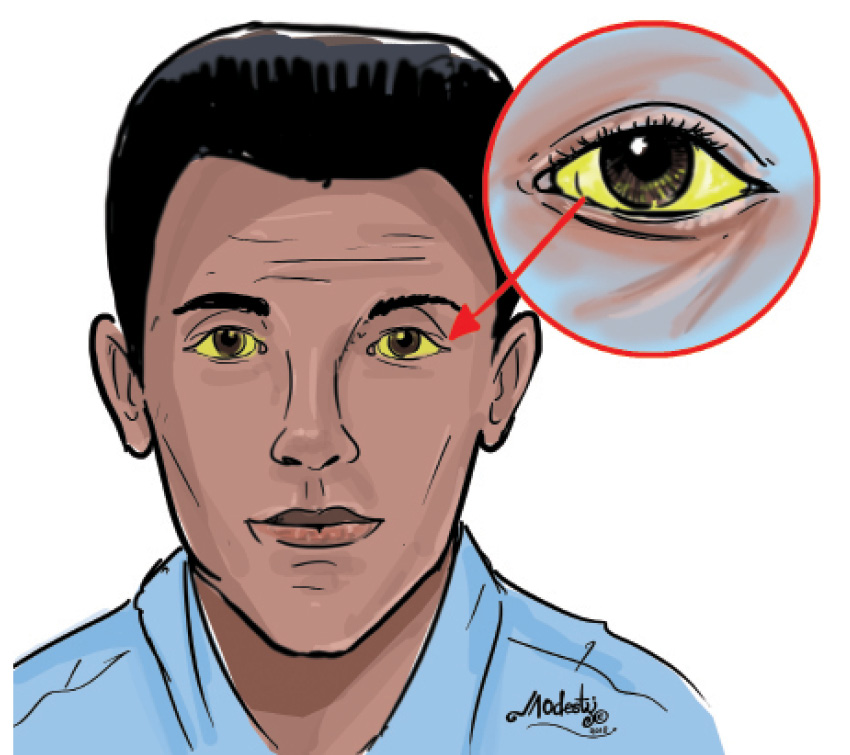How to protect yourself from yellow fever
Nigeria has been experiencing sporadic outbreaks of yellow fever since September, 2017 when it was confirmed in a seven-year-old child in Oke Owa Community, Ifelodun Local Government Area of Kwara State. Yellow fever is caused by a virus spread through the bite of infected mosquitoes. There is no human-to-human transmission of the virus. Symptoms of […]

How to protect yourself from yellow fever
Nigeria has been experiencing sporadic outbreaks of yellow fever since September, 2017 when it was confirmed in a seven-year-old child in Oke Owa Community, Ifelodun Local Government Area of Kwara State.
Yellow fever is caused by a virus spread through the bite of infected mosquitoes. There is no human-to-human transmission of the virus. Symptoms of yellow fever include yellowness of the eyes or jaundice, sudden fever, headache, vomiting, fatigue and body pain. In severe cases, bleeding may occur from the mouth, nose, eyes or stomach.
According to the Nigeria Centre for Disease Control (NCDC), since September 2017, Nigeria has recorded suspected cases of yellow fever in all states of the country. As at July 31, 2019, 78 cases had been laboratory confirmed in the country.
Last week, the centre confirmed four cases of yellow fever in Bauchi State. “Three of the confirmed cases are residents of Alkaleri Local Government Area and the fourth case is a tourist who was visiting Kano State and also visited the Yankari Games Reserve in the same LGA in Bauchi State,” the NCDC said.
The centre also confirmed three cases of the disease in Ebonyi State in July. This followed report of cases and deaths from fever of unknown origin in Izzi Local Government Area of the state. The state’s public health team has commenced investigation. As at July 31, 2019, three cases had tested positive for yellow fever at NCDC’s National Reference Laboratory, which triggered an immediate response.
Daily Trust reports that the recent outbreak in Bauchi State linked to the famous Yankari Games Reserve has triggered a healthcare emergency in the state.
Before then, there were reported deaths of some students of Waka Biu College of Education, Borno State, who earlier visited the Games Reserve.
Reports of suspected cases were also conveyed to the Bauchi State Health Ministry by its Kano State counterpart involving students of Maitama Sule University who also visited the reserve on an excursion. That prompted the authorities to embark on an immunisation campaign at the reserve and surrounding communities to prevent further spread.
The chairman of Bauchi State Primary Healthcare Development Agency (BSPHCDA), Dr Rilwanu Mohammed, said the areas affected would be fumigated including an aerial spray to kill the mosquitoes that act as vectors to transmit the disease.
Dr Rilwanu said prior to the outbreak, two persons, an NYSC member and a casual staff of Yankari Park, have died with similar symptoms exhibited by other victims.
Corps members and staff at the State Permanent NYSC Orientation Camp at Wailo have also been vaccinated following the reported death of the corps member linked to Yankari.
Two persons died while 11 others were treated and discharged during the outbreak which commenced on January 15 in Ebonyi State, according to the state government.
However, indigenes of Ndungele in Ebonyi Local Government Area of the state which was worse hit, said no fewer than 18 persons were killed by the disease.
The state government has targeted to vaccinate over 1.121.021 population in three local government areas of the state to curb the spread of the disease.
Those areas affected and would be part of the exercise are Abakaliki, Ebonyi and Izzi local government areas.
Daily Trust learnt that 9-month-old babies to 44-year-old adults would be vaccinated in the 10 days exercise which started on 6th and would end on 16 September, 2019.
Medical experts said the most important measure to take in preventing yellow fever is vaccination against the disease. A single dose of yellow fever vaccine, which is included in Nigeria’s routine immunisation schedule given at nine-months, is free and sufficient to confer sustained protection of up to 10 years. Other methods of prevention include using insect repellent, sleeping under a long-lasting insecticide treated net, ensuring proper sanitation and getting rid of stagnant water or breeding space for mosquitoes.
The Nigeria Centre for Disease Control said yellow fever is a completely vaccine preventable disease and a single shot provides immunity for a lifetime.
“The yellow fever vaccine is freely available in all primary health care centres in Nigeria as part of the routine immunisation schedule. Every child is protected for life if vaccinated. We encourage every family to ensure that children receive all their childhood vaccines.
“In addition to the vaccine, the public are advised to keep their environments clean and free of stagnant water to discourage the breeding of mosquitoes and use insecticide treated mosquito nets, screens on windows and doors to prevent mosquito bites. It is important to avoid self-medication: visit a health facility immediately if you feel ill,” the centre said.
“Seek out where YF vaccine is available and ensure you and your family members receive the vaccine, especially those who have not received the vaccine at any time in their life. We need to take environmental sanitation more seriously, and that will not serve as breeding grounds for mosquitoes,” says Prof Oyewale Tomori, a virologist and chair, National Laboratory Technical Working Group (NLTWG).
It is important for Nigerians to get themselves vaccinated in order to protect themselves from the disease. The NCDC also advises the public to contact their nearest primary healthcare centre if they have symptoms of yellow fever or notice someone in their community displaying them.
